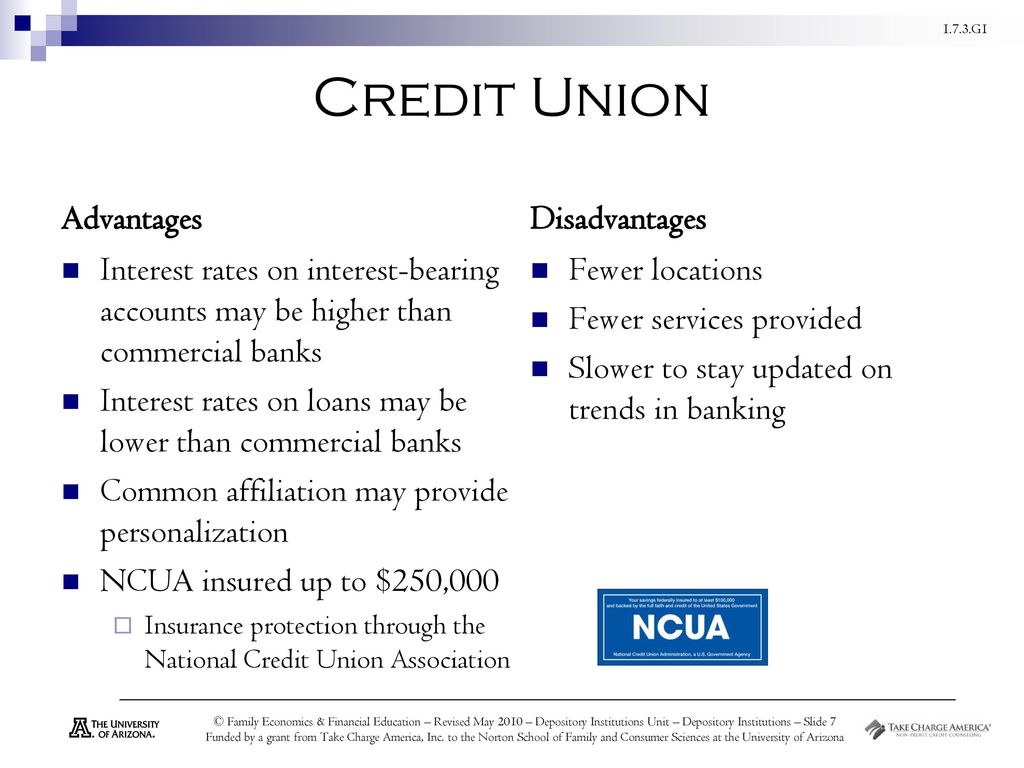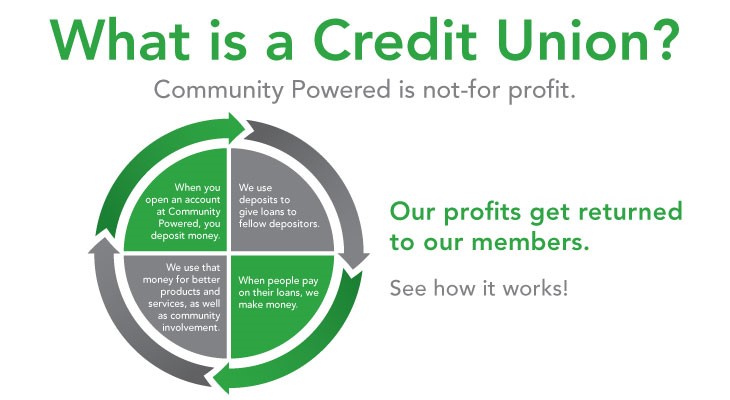Hybrid Line of Credit: Ingenious Financial Products from Wyoming Credit Unions
Hybrid Line of Credit: Ingenious Financial Products from Wyoming Credit Unions
Blog Article
The Ultimate Guide to Comprehending Cooperative Credit Union

Credit history unions stand as unique economic entities, rooted in principles of shared support and member-driven operations. Past their foundational worths, recognizing the detailed functions of credit report unions entails a much deeper expedition. Deciphering the intricacies of subscription qualification, the development of solutions offered, and the distinct advantages they bring calls for a thorough examination. As we navigate with the ins and outs of credit report unions, an informative trip waits for to clarify these member-focused organizations and how they vary from typical financial institutions.
What Are Credit Unions?
Credit score unions are member-owned banks that use a variety of financial services to their members. Unlike traditional banks, credit score unions operate as not-for-profit organizations, suggesting their key focus gets on offering their participants as opposed to making best use of earnings. Participants of a lending institution generally share an usual bond, such as helping the same employer, coming from the same community, or being part of the exact same company.
One of the crucial advantages of lending institution is that they frequently use higher rate of interest on financial savings accounts and reduced rates of interest on financings contrasted to financial institutions. Hybrid Line of Credit. This is since cooperative credit union are structured to benefit their participants straight, permitting them to pass on their incomes in the type of better prices and fewer costs. Furthermore, cooperative credit union are recognized for their customized customer support, as they prioritize building partnerships with their members to understand their special economic demands and goals
History and Development of Credit History Unions
The origins of member-owned monetary cooperatives, known today as lending institution, trace back to a time when communities looked for choices to conventional financial establishments. The idea of credit unions come from the 19th century in Europe, with Friedrich Wilhelm Raiffeisen frequently attributed as the leader of the participating banking movement. Raiffeisen founded the first recognized credit report union in Germany in the mid-1800s, stressing community assistance and self-help concepts.
The development of cooperative credit union proceeded in North America, where Alphonse Desjardins established the first credit score union in Canada in 1900. Soon after, in 1909, the very first united state cooperative credit union was formed in New Hampshire by a team of Franco-American immigrants. These very early lending institution run on the basic concepts of shared aid, democratic control, and participant possession.
With time, cooperative credit union have actually expanded in appeal worldwide because of their not-for-profit structure, concentrate on offering participants, and providing competitive monetary services and products. Today, lending institution play an important role in the economic sector, supplying easily accessible and community-oriented banking choices for people and companies alike.

Membership and Qualification Requirements
Membership at a debt union is usually restricted to people fulfilling certain eligibility criteria based on the establishment's starting concepts and regulative requirements. Some credit score unions might only offer people who live or work in a certain location, while others might be customized to staff members of a particular company or members of a particular association.
Furthermore, cooperative credit union are structured as not-for-profit organizations, indicating that their main objective is to offer their members instead of generate revenues for investors. This concentrate on member service often converts into more personalized interest, reduced fees, and affordable rates of interest on savings and finances accounts. By satisfying the qualification standards and becoming a member of a lending institution, individuals can access a series of monetary products and services customized to their certain requirements.
Solutions and Products Supplied
One of the crucial aspects that sets credit score unions apart is the varied variety of monetary services and items they use to their members. Credit scores unions usually offer conventional banking solutions such as savings and inspecting accounts, lendings, and continue reading this credit score cards.
In addition, lending institution usually give hassle-free online and mobile banking choices for members to quickly manage their funds. They might offer advantages such as common branching, enabling participants to access their accounts at various other lending institution across the nation. Some cooperative credit union additionally offer insurance policy products like automobile, life, and home insurance coverage to assist members protect their properties and loved ones.

Advantages of Banking With Cooperative Credit Union
When taking into consideration economic institutions, checking out the advantages of banking with credit rating unions these details exposes one-of-a-kind benefits for participants looking for customized service and competitive prices. One substantial advantage of lending institution is their emphasis on personalized customer support. Unlike huge banks, cooperative credit union are member-owned and prioritize building solid relationships with their participants. This means that lending institution personnel commonly have a deeper understanding of their participants' economic needs and can use tailored services to help them achieve their objectives. Furthermore, cooperative credit union are known for supplying affordable rates of interest on financial savings and loans accounts. Due to the fact that they are not-for-profit organizations, cooperative credit union can typically give lower funding rates, higher savings prices, and reduced fees contrasted to traditional banks. This can result in significant expense financial savings for members over time. Overall, financial with a lending institution can provide a much more tailored, economical, and member-centric monetary experience.
Verdict
In verdict, debt unions stand out as member-owned economic establishments that focus on offering their members over making best use of revenues. With origins dating back to 19th century Europe, credit unions adhere to principles of shared help and participant possession.
Credit report unions are member-owned financial institutions that supply a range of financial solutions to their members. The principle of credit score unions stem in the 19th century in Europe, with Friedrich Wilhelm Raiffeisen commonly attributed as the leader of the participating banking movement.The evolution of credit rating unions continued in North America, where Alphonse Desjardins developed the initial credit report union in Canada in 1900. Credit score unions normally give traditional financial services such as financial savings and inspecting accounts, loans, and credit report cards.When thinking about monetary institutions, exploring the advantages of banking with credit rating unions exposes distinct benefits for here are the findings members seeking personalized service and competitive prices.
Report this page